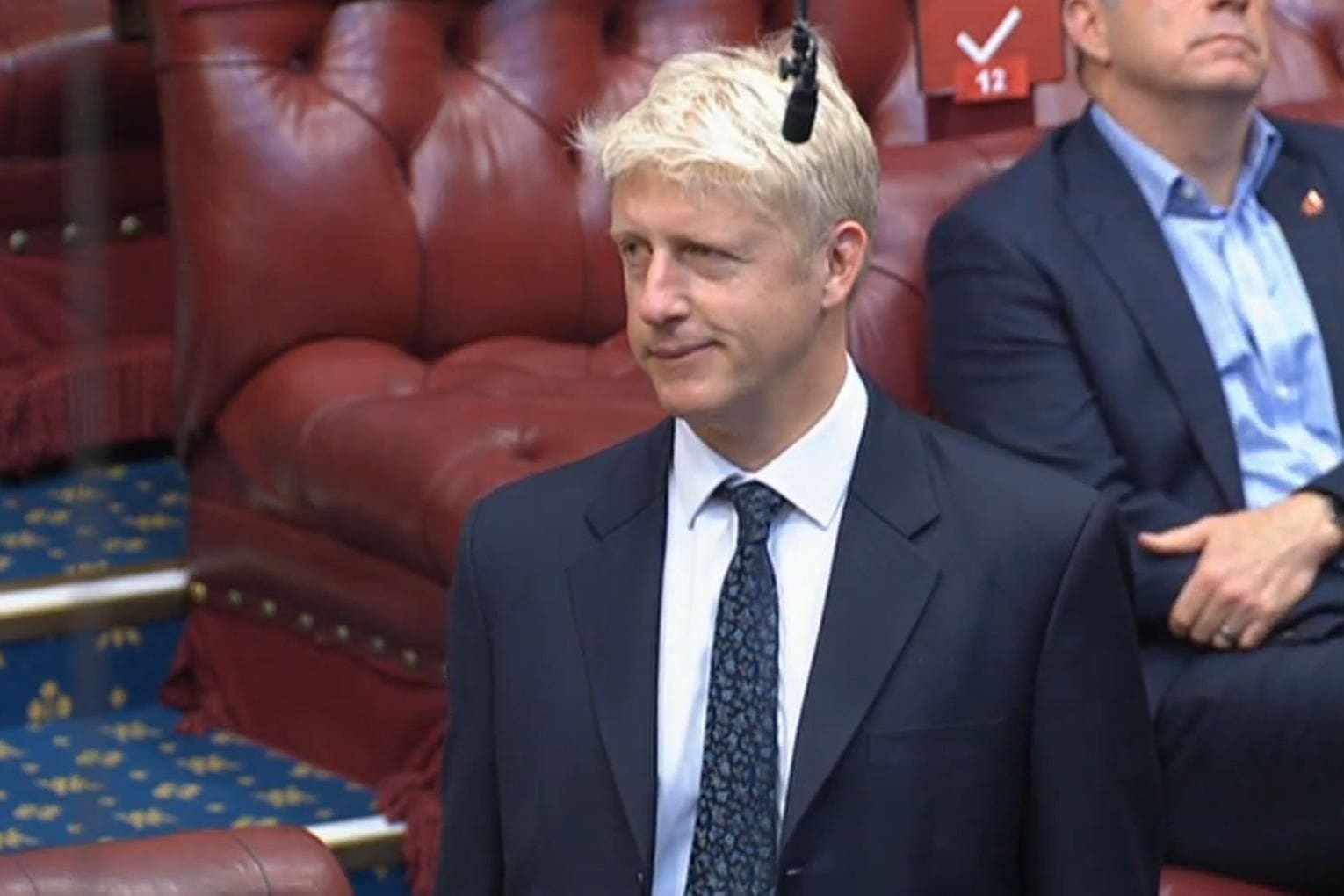Education system for 11 to 16-year-olds is failing pupils, says Lords committee
‘Change to the education system for 11–16 year olds is urgently needed,’ Lord Jo Johnson said.

The education system for 11 to 16-year-olds is too focused on academic learning and written exams – and reform is “urgently needed”, a House of Lords report calling for the English Baccalaureate (EBacc) to be axed has warned.
The current system is limiting pupils’ opportunities to study a broad and balanced curriculum and to develop core skills, the Education for 11–16 Year Olds Committee’s report published on Tuesday claims.
After hearing from witnesses including pupils, teachers, school leaders, academics and ministers, the cross-party committee argues change is needed to the 11–16 curriculum and assessment model to “create more space for technical, digital and creative areas of study, and reduce the burden of GCSE exams”.
The report, Requires improvement: urgent change for 11–16 education, also calls on the Government to immediately scrap the EBacc – a Government measure introduced in 2010 which aims to ensure pupils take English, maths, science, geography or history, and a language at GCSE.
The Government’s aim is to see 90% of pupils in England studying the EBacc subject combination at GCSE by 2025.
“The evidence we have received is compelling,” the committee’s chair Lord Jo Johnson said.
“Change to the education system for 11 to 16-year-olds is urgently needed, to address an overloaded curriculum, a disproportionate exam burden and declining opportunities to study creative and technical subjects.”
The committee has urged the Government to implement a number of reforms to the 11-16 curriculum, such as by “reducing the dominance of rote learning” and “providing more opportunities at key stages 3 and 4 to study creative, cultural, vocational and technical subjects”.
They have also suggested “giving pupils the option to take functional literacy and numeracy qualifications at key stage 4 which differ from, but are equal in value to, GCSE English and maths” and “embedding climate change and sustainability education across the key stage 3 and 4 curriculums”.
Key Stage 3 comprises Year 7, Year 8 and Year 9, while Key Stage 4 covers Year 10 and Year 11.
The committee also urged the Government to change how 14 to 16-year-olds are assessed by considering a range of proposals, such as slashing the amount of external assessment undertaken by pupils during key stage 4 and “introducing a greater proportion of non-exam assessment”.
They have further called on ministers to revise school performance measures by “abandoning EBacc entirely, including the ambition for 90% of pupils to be taking this subject combination, and removing all references to the EBacc from Ofsted’s school inspection handbook”.
Daniel Kebede, general secretary of the National Education Union, said: “This report is comprehensive in assessing the problems but also in offering solutions.
“What this cross-party committee has found chimes with what NEU members see at the chalk face…
“The current curriculum is not fit for the challenges and realities of our times.
“The way our current curriculum is assessed does not support students to demonstrate all that they’re capable of and the crude league table measures push out the arts and technical subjects. All this must change.
“The consensus for change is clear and undeniable. Any current or future government must take note of calls like this one, from across the sector, for curriculum and assessment modernisation.
“The future success and wellbeing of young people, and the nation, depends on it.
“However, without addressing real terms school funding cuts and tackling the intense workload of staff, which drives our serious teacher recruitment and retention challenge, the changes needed have little chance of materialising.”
Geoff Barton, general secretary of the Association of School and College Leaders, said: “We agree that the education system in England needs rebalancing.
“Government policies have prioritised a set of academic GCSEs, and increased the time students spend sitting exams as well as the amount of information they must memorise.
“It is not conducive to good mental health or enjoyment of learning and has felt like an attempt to recreate an education system from the 1950s.
“Central to this is the English Baccalaureate which is not a certificate that young people receive but a performance measure of schools designed to drive uptake in academic GCSEs.
“This has resulted in a decline in entries to non-EBacc subjects such as the creative arts and design and technology.
“We support the committee’s call for an immediate end to the EBacc as this would help rebalance the curriculum.
“On the committee’s other recommendations, we agree with the need to reduce external assessment and make greater use of onscreen technology and we think the best way to approach curriculum reform is to establish an independent commission.”
He said “a broad and balanced curriculum is reliant upon schools and colleges having the funding and staff they need” which is “currently a very long way from being the case”.
It is understood the Department for Education (DfE) will study the committee’s findings and respond fully in due course.
A DfE spokesperson said: “We’ve introduced gold-standard qualifications backed up by a new knowledge rich curriculum of key subjects like maths, English and Science, alongside the opportunity to study music, the arts and humanities, all of which will better equip pupils with the knowledge and skills they need for the future.
“We are constantly seeing the success of our reforms. Just last week, England was ranked 11th in the world for maths up from 27th in 2009, and in May we were named ‘best in the West’ for primary reading out of a comparable 43 countries.
“Through the new Advanced British Standard, we will expand the range of what our 16 to 19-year-olds learn, giving them the freedom to take a mix of technical and academic subjects, boosting their skillset and allowing them more flexibility over their future career options.”
Bookmark popover
Removed from bookmarks